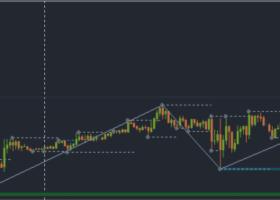Central Banks
Central Banks deserve a nomination for traders of the year this week, hitting the FX board with surprise after surprise these last few days, and investors unable to recoup from one shock before receiving another hit in the chin. Let’s do a brief recap: the SNB lift the cap in EUR/CHF, all BOE members voted to keep rates on hold, Canada Central Bank cut rates by surprise, and… oh yes! The ECB announced QE for roughly € 1 Trillion. ECB’s Not So Super Mario announced that the central bank will purchase $60 billion a month in sovereign debt and other assets through at least September 2016, but remarket the program can be in fact open-ended.
The immediate consequences are a EUR/USD 500 pips fall in pretty much 24 hours, stocks flying along with bonds, and depressed yields. But will it be enough to save the Euro area?
Let’s start the answer by quoting BOE’s Governor Mark Carney words: “this doesn't deliver medium-term prosperity; it just creates the conditions for it." By overflowing Europe with liquidity, ECB intentions are to boost the economy by increasing the growth rate, resulting in more consumption and a higher inflation, the one and only target of the common area Central Bank. Indeed, QE could have a significant effect in the economy by further weakening the euro against other currencies, thereby increasing exports with the above mentioned results.
For sure, local stocks will be the most benefited, considering the effects quantitative easing has had in the US, Japan and the UK these last years. But what Europe needs is to get off the ground, not just rising equities and falling yields. And QE alone won’t do it. The fact that the German DAX surged to all time record highs points out the high risk of market bubbles this QE means. Europe has talked largely about a fiscal program that never came, and there is no plan on jobs and wages. Unless the EZ deepens its measures towards those two sectors, the only winners of QE will be speculators.
In the meantime, there is another risk no one seems to be considering at the time being: dollar strength. The American currency trades at multiyear highs against most of its rivals, in a rally that begun on speculation the FED will be the first to raise rates and fueled lately by other Central Banks’ decisions. But a strong dollar can weight in American multinationals, as the dollar will become too expensive, which will result in a tempered inflation. The final result will be a delay in FED’s decision to raise rates. After what happened these days, forget about a move in April.
Grexit
The world will continue to roll around Europe as on Sunday, Greece will go into elections. Greece has been and remains to be, the core of the EZ crisis, the one suffering the most with austerity, the one getting the first bailout, and the one with one quarter of its population still unemployed. Last December, the parliament failed to elect a President, resulting in an early snap election, with Syriza opposition party leading polls for over a year, although with a shrinking margin ahead of the key day.
Greece people are unhappy. Despite the country sees a mild, suffered recovery, the common people believes Germany, in the form of Mrs. Merkel is the one forcing them to live in poor conditions since 2010. That’s why Syriza is so popular: because its leader Alexis Tsipras, promises that as of Monday should he win, ““the people with their votes will put an end to the devastating policies of the last five years.” Among his promises, he includes hikes in low pension and minimum wages, the abolition of some taxes, and guaranteed for bank deposits.
The election will be closely watched by financial markets as a Syriza victory could lead to a default in the troubled country, and the always feared exit from the euro zone. Furthermore, it can have a domino effect in other peripheral countries, such as Spain, Italy and Portugal. Chances of these last leaving the common union are low, but indeed will affect how they react to imposed economic conditions.
By far, the risk of a Grexit is exponentially higher this time than at the beginning of the European crisis, implying a EUR below parity against the USD if there’s something left of the EUR after this.


